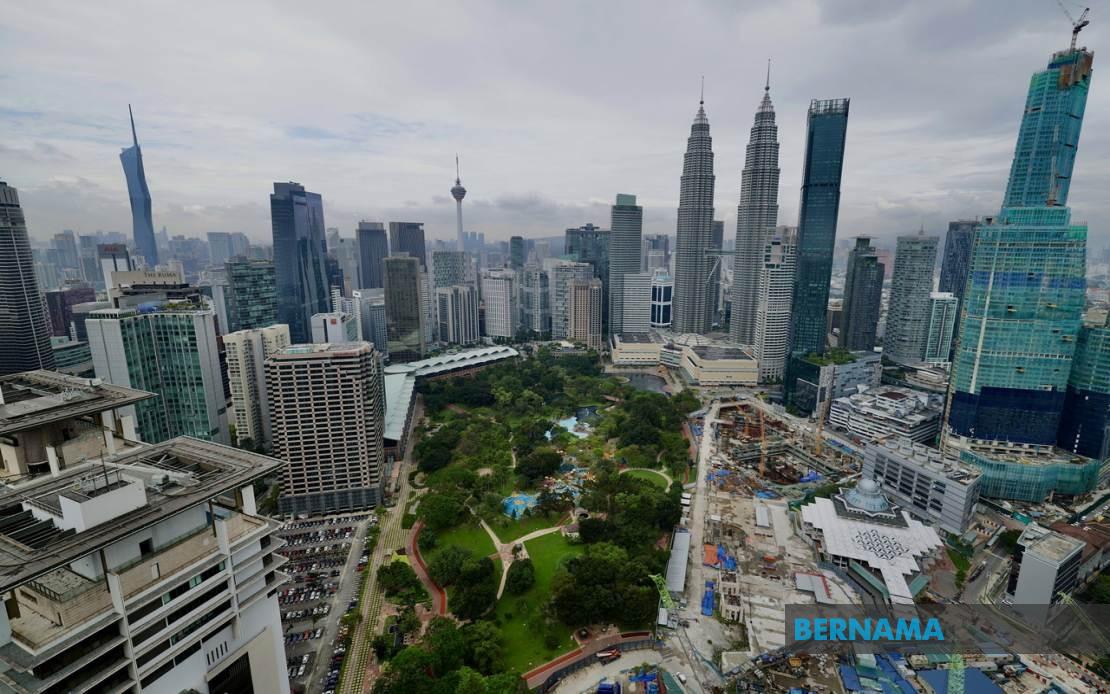A recent survey has highlighted growing optimism among German companies operating in Malaysia, signaling renewed confidence in the country’s business environment. Despite global economic uncertainties, German investors are increasingly viewing Malaysia as a stable, reliable, and strategically significant destination for business expansion and long-term growth.
The survey, conducted by the Malaysian-German Chamber of Commerce and Industry (MGCC), involved feedback from over 100 German firms active in various sectors such as manufacturing, logistics, engineering, technology, and professional services. The results present a clear trend: German businesses are more confident in Malaysia’s economic prospects now than in previous years.
A Positive Shift in Sentiment
One of the most telling findings of the survey is the significant increase in the number of companies that rate Malaysia’s economic situation as “good” or “very good.” Over 60% of respondents expressed a positive outlook for the country’s economy in the next 12 to 24 months. This marks a notable improvement from previous surveys, where sentiments were more reserved due to pandemic-related challenges and supply chain disruptions.
Several key factors have contributed to this shift. Malaysia’s strategic location in Southeast Asia, access to a large and skilled workforce, stable political environment, and supportive government policies continue to make it an attractive destination for German companies looking to serve regional and global markets.
Strengthening Bilateral Relations
Germany and Malaysia have enjoyed strong bilateral ties for decades, and trade between the two nations continues to flourish. Germany is Malaysia’s largest trading partner from the European Union, while Malaysia is one of Germany’s key economic partners in the ASEAN region.
German companies interviewed in the survey praised the Malaysian government’s proactive efforts to improve the ease of doing business. Measures such as digitalization of government services, tax incentives, and streamlined investment approval processes have helped create a more business-friendly environment. These reforms have been particularly beneficial to small and medium-sized German enterprises (SMEs) seeking to establish or expand their presence in the country.
Workforce and Talent Availability
A major area of satisfaction among German businesses is the availability of skilled labor. The Malaysian workforce is highly regarded for its technical expertise, language proficiency, and adaptability. Many companies expressed satisfaction with the productivity levels and education standards of local employees, particularly in the engineering, IT, and manufacturing sectors.
However, some respondents also pointed out challenges related to talent retention and the need for continuous upskilling. To address these issues, several German companies have established vocational training programs in collaboration with local institutions, modeled on Germany’s renowned dual education system. These initiatives aim to bridge the gap between academia and industry while contributing to local human capital development.
Manufacturing and Export Potential
Malaysia’s robust manufacturing sector continues to attract German industrial players, especially in areas like automotive components, electrical and electronic products, and machinery. Many firms reported increased production capacity and export growth in the past year. The country’s membership in regional trade agreements such as the Regional Comprehensive Economic Partnership (RCEP) also enhances its attractiveness as an export hub.
German manufacturers operating in Malaysia benefit from competitive operating costs, reliable infrastructure, and access to well-established global supply chains. The survey found that a considerable number of companies plan to increase their investments in automation, digital transformation, and sustainable production over the coming years.
Emphasis on Sustainability and ESG
Environmental, Social, and Governance (ESG) criteria have become a growing priority for German businesses worldwide, and Malaysia is no exception. Many companies noted that sustainability and climate-resilient practices are now central to their business strategies. German firms operating in Malaysia are investing in renewable energy, carbon reduction technologies, and sustainable supply chain management.
The Malaysian government’s commitment to green growth and its aspiration to become a carbon-neutral nation by 2050 align well with the values and goals of German enterprises. The survey suggests that more German companies are looking to Malaysia not just for profits, but also for long-term partnerships in the transition to a sustainable economy.
Challenges and Areas for Improvement
Despite the overall optimism, German businesses did highlight several areas where improvements could enhance Malaysia’s competitiveness. These include regulatory clarity, consistency in policy implementation, and further efforts to reduce bureaucracy. Additionally, concerns over intellectual property protection and data security were raised by companies in the technology and pharmaceutical sectors.
Infrastructure remains another topic of interest. While Malaysia boasts strong logistics capabilities, respondents emphasized the importance of ongoing investment in digital infrastructure and transport connectivity to maintain the country’s competitive edge.
Future Outlook
Looking ahead, the survey results suggest a bullish sentiment among German firms in Malaysia. Nearly half of the surveyed companies plan to increase their capital expenditure over the next two years. Furthermore, over 70% intend to expand their workforce, highlighting expectations of sustained growth.
This optimism is also reflected in the broader German business community in Southeast Asia, where Malaysia is increasingly seen as a stable alternative to other emerging markets that face greater political or economic volatility.
Conclusion
The survey of German companies operating in Malaysia paints a promising picture of economic collaboration and shared opportunity. As global businesses seek stability, innovation, and growth in an uncertain world, Malaysia appears to be strengthening its position as a preferred destination for German investment.
With mutual commitment to sustainable development, talent cultivation, and digital transformation, the partnership between Malaysia and Germany is poised to grow deeper and more dynamic in the years ahead. German confidence in Malaysia is not just a passing sentiment — it reflects a strong foundation for continued bilateral success.



